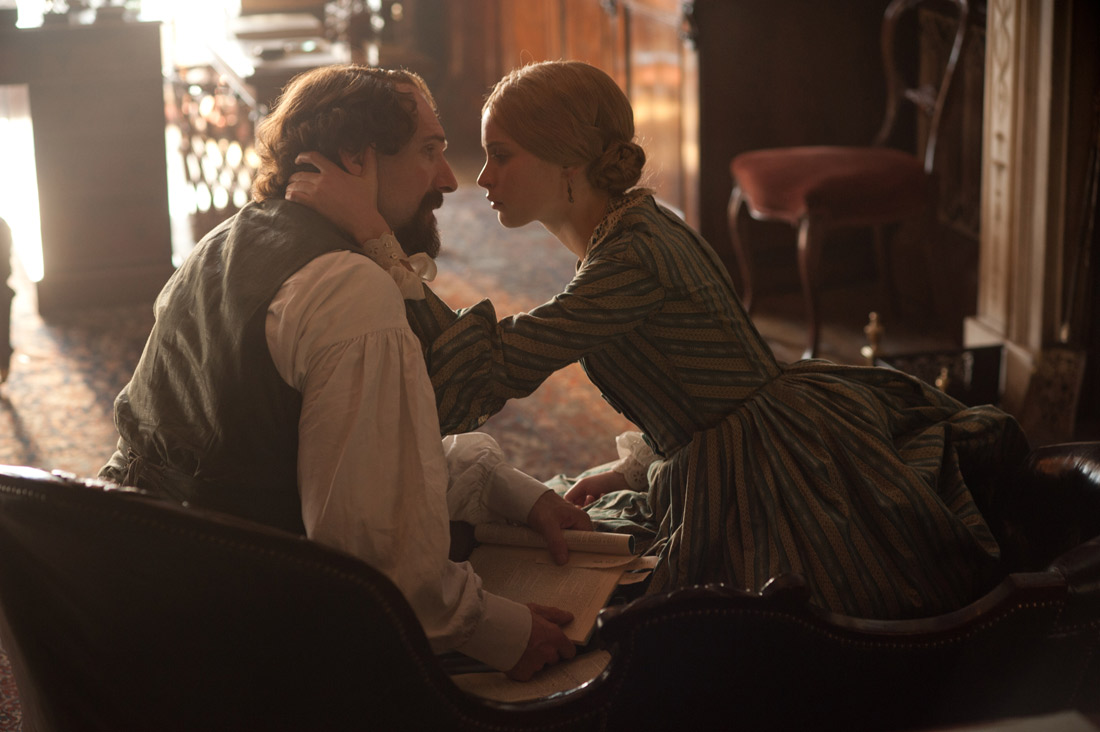How unfortunate that a story pulled from the life of one of the world’s greatest writers, a man nearly unrivaled in his talent for characterization and ability to draw lively, colorful, and often funny sketches of life in Victorian England, has resulted in this drab, plodding film.
It’s only the beguiling charms of actress Felicity Jones and a typically terrific performance by Ralph Fiennes as Charles Dickens that keep the entire enterprise from having all the excitement of an 8 a.m. college English lecture. Any points granted to Fiennes for his acting must immediately be deducted due to his responsibility as the movie’s director.
The Invisible Woman portrays Dickens’ affair with a much-younger woman called Nelly (Jones). They meet when she is 18 and he is 45, already the best-known and beloved writer in England. She treasures every word of his novels, and he is immediately smitten with her. His wife Catherine (Joanna Scanlan) doesn’t understand his work or share his love of convivial pleasures, and so his marriage has long been loveless.
Though drawn to Dickens, Nelly is intimidated by her famous idol and shies away from his attentions. Her mother (Kristin Scott Thomas), however, sees the potential for Nelly to escape a meager existence by becoming the well-cared-for mistress of the wealthy writer.
Does Nelly want that for herself? It’s hard to tell. The movie plays like a series of disconnected scenes rather than a cohesive whole. In one scene Nelly is cold to Dickens, insistent that she will not become his “whore,” and abruptly in the next we see her laughing jovially with him as they take a walk on a sunny day. There’s no flow from one moment to the next, a problem compounded by the fact that most of the story is told in flashback.
We first see Nelly in 1883, when she’s running a school for boys and married to a kindly but unremarkable man named George (Tom Burke). It’s 13 years after Dickens’ death, and Nelly spends her days taking solitary walks on the beach and hiding from her past. Fiennes seems entranced by the back of Jones’ neck, as over and over he places his camera close-up behind her, capturing her profile as she glances pensively back over her shoulder. This occurs so often that it must have been an intentional dramatic choice, but I have no idea what the meaning of that choice might be.
In fact, I have no idea what the ultimate purpose of this film might be. Dickens is undoubtedly of great interest to many, and Invisible Woman reveals complexity to his character, mostly his narcissism rather than his brilliance (which is taken as a given.) But the relationship between Nelly and Dickens ends up just exactly where we knew it would, and we’re left with no clear sense of what it is that Nelly gets from a relationship that apparently makes her equal parts joyful and miserable.
The Invisible Woman herself remains opaque.





